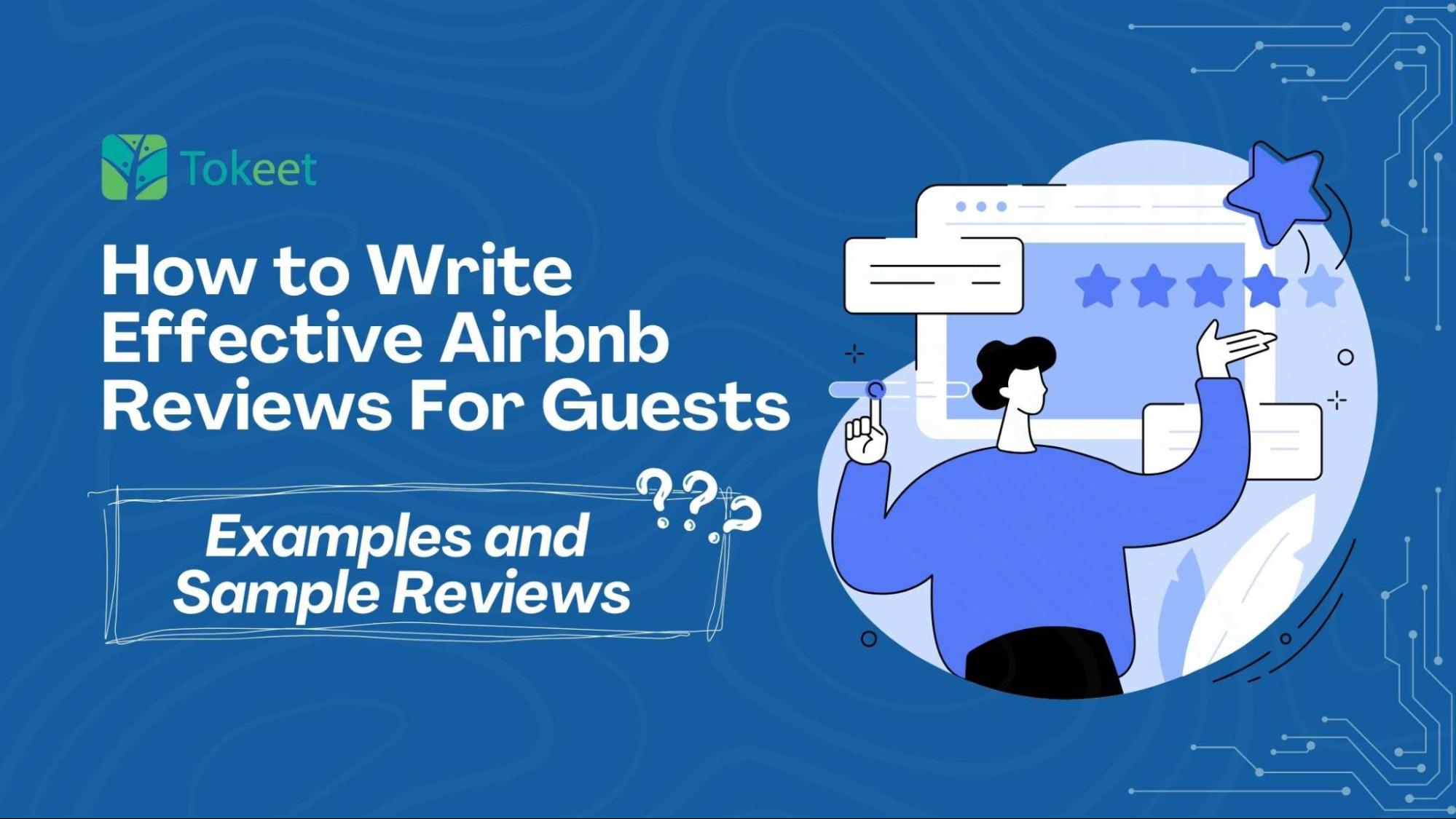Starting a business is easy, staying in business is hard. And foreseeing, preparing for, and avoiding the pitfalls common to your industry is even harder. But, with a little help, you can actually cover all of your bases right from the start. That’s what we mean when we say “bulletproof”.
It’s a bold claim, and there’s always going to be other factors in play when it comes to running a successful VR business. Property appearance and amenities, pricing, competitiveness, review scores, etc. These are technical and qualitative considerations that you can get on top of with the following guides:
- Essential Tools & Texts for New VRMs
- Tips to Improve Your Hosting Skills
- Vacation Rental Interior Design
- How to Handle Bad Reviews
What we’re going to do here in this article is go through the very first steps of starting your own vacation rental business. For those who’ve started a business in another industry before, you’ll be familiar with much of the procedural stuff – you may skip the first three sections. For anyone else, we recommend you take it all in…this stuff is quite important.
To start a (legal) business, you need to decide upon a structure. The purpose of this is to set a precedent for proper taxation and define ownership in clear terms for legal processes. It might sound a little like boring legal jargon for the unacquainted, but you really should get familiar with this stuff if you plan on being in business for long. There are four main types:
Sole Proprietorship
This is a very common choice for small businesses, and requires the least amount of effort to get started. This is a business structure with a single owner who maintains control over all assets, and is also liable for all legal representation and taxation associated with the business.
Essentially, you and your business are the same entity. Your business income is declared on your personal tax statements. For this reason, it’s highly recommended that you make an effort to separate your channels of income/payments – a business account can be very useful to identify your earnings and write-offs in the event of an audit or other IRS proceedings. If your business goes bankrupt, your personal assets are at risk. If your business is sued, you are personally responsible for legal fees and restitution.
While a sole proprietorship may be perfectly fine for some types of businesses, it’s generally not recommended for vacation rental management businesses. Particularly, VRM businesses that own the property being operated. A sole proprietorship is perfectly fine if you’re operating with other peoples’ properties.
In the hospitality field, you really want to put some space between yourself and the legal entanglements that arise from being sued. You’re dealing with a high amount of traffic on properties that you personally own and maintain, and you’re getting all sorts of people on your doorstep. The odds of being sued (rightfully or not) are much higher than, say, an Etsy pottery business.
Is being sued likely? Depends how many properties you have, but your livelihood and assets are at stake in the event someone decides they want to sue you for a petty slip and fall.
Read about LLCs below if you were considering a sole proprietorship – it’s an option that’ll shield you from this scenario.

Partnership
A partnership is a business structure that, as you may have guessed, distributes ownership between two or more parties. When it comes to liabilities, this structure resembles a sole proprietorship. There are two types of Partnerships that can be defined by their liabilities – General and Limited.
A General Partnership requires that you and your partner(s) actively manage the company and assume all of its taxation and legal responsibilities. Since partnerships don’t necessarily have to be equally shared, some members may be personally accountable for less legal/tax burden than others. This can also serve as the basis for internal legal disputes.
A Limited Partnership involves at least 1 general partner and 1 limited partner. The general partner(s) assumes all legal responsibility and the business’s taxation occurs at their personal income level. The limited partner(s) only serves as an investor with no business control or legal/tax liabilities.
Corporation
This is really a subject that deserves its own article due to its complexity. The likelihood of a first-time business owner having need for a corporation at the get go is quite low, so forgive us for not elaborating here. A corporation exists as a separate entity from owners and is best suited for companies that intend to have shareholders.
The taxation process occurs twice – once for the company’s income, and a second time for the shareholders’ personal income. In terms of liabilities, the corporate structure resembles an LLC more than a sole proprietorship, but allows for shareholding members to have control over aspects of the business. Owners and shareholders avoid liabilities (though an S-type Corporation differs here).
Chances are, this is a little more than you need right now.
Limited Liability Company
The Limited Liability Company (or LLC) is an all-encompassing structure that insulates owners from legal & tax liabilities. The burden belongs to the company alone. An LLC can also have multiple owners, like a partnership.
As anyone in the real estate or vacation rental investment / management business would attest, an LLC is the best route to take. You can use your LLC for property purchases, and any debts or legal troubles belong to the business and the business alone.
The LLC structure differs from state to state, and, unlike a sole proprietorship, comes with some higher registration fees. In New York State, for instance, the cost of registering an LLC is about $500. Make sure you research your state’s specific definition of a Limited Liability Company and its requirements for ownership changes, along with registration fees.
In most cases, the LLC is going to be your best choice for a hospitality / property management business.
Register Your Business
Now that you’ve decided upon a structure (along with any partners you may have), you can get going with the paperwork. When we said “starting a business is easy”, this is what we were referring to.
Depending on your ownership structure, you may be required to pay some fees just to file the paperwork. Each state sets their own fees for business registration. You may also need to take a trip to your local county clerk’s office to file in person. Most of the process can be done on the internet though.
When starting an LLC, you must choose a registered agent to accept legal correspondence at a fixed address. You can elect yourself, or, if you’d like to keep your name off the records as much as possible, there’s registration agent services you can pay for. They essentially serve as mail forwarders, but provide a little more insulation from your business and yourself.
Due to the registration process differing in every state, we can only recommend that you perform a Google search for “[your state] + [business structure] + registration“. Only use official state and local government websites to go through this process – they’ll have .gov domains.
Taxes – Liabilities
The IRS is the second part of your business registration process. Just to clarify, your business will be subject to state taxation as well as federal taxes. The state taxes will come quarterly (every three months) and the federal income tax will be sent out annually. You must register your business with the IRS so you can be properly taxed.
Luckily, the IRS is actually quite an easy institution to work with. Ignore the tropes of heartless penny-pinching taxmen tearing businesses down and leaving you destitute and homeless. They’re pretty friendly on the phone and have a whole lot of helpful data for you to follow online. This article, for instance, should answer all of your federal taxation questions.
Taxes – Exemptions
Vacation rental and hospitality businesses are entitled to a number of very helpful tax exemptions – more so than many other industries. That includes property taxes, mortgage interest, repairs, deprecation, and even operating expenses. Read this article for a full run-down of just how much you can write off (it’s a lot).
Preparedness
Now we’ve gotten all the legal and tax paperwork out of the way, let’s talk about keeping your business.
This isn’t about liabilities now, just your efforts and preparation – a realistic take on vacation rental businesses. This is a new industry in the grand scheme of things, and it’s only now just starting to reach a level of predictability in terms of market growth. It’s also a fiercely competitive industry, and more so in high traffic areas.
There’s no more proof of this than the frequent headlines you’ll find of high traffic, traditional vacation cities crunching numbers and discovering a fantastically high percentage of vacation rental homes. These numbers would indicate that there’s either a huge bubble in the business or that it’s an extremely robust industry. The latter has proven itself true year after year, but there are certainly areas that you’d do well to avoid purchasing property in.
It’s up to you, as a business owner, to due your homework to find the best possible neighborhoods and properties. When we say ‘best’, we mean properties capable of retaining value and sustained business over time.
In the vacation rental industry, these are the things that can sink you:
- Competition
- Traffic Fluctuation
- Location & Property Quality
We provide a number of articles to help you make the best choices and form strategies that will ensure your chances of success are highest. Prepare yourself:
The Beginner’s Guide to Vacation Rental Management







